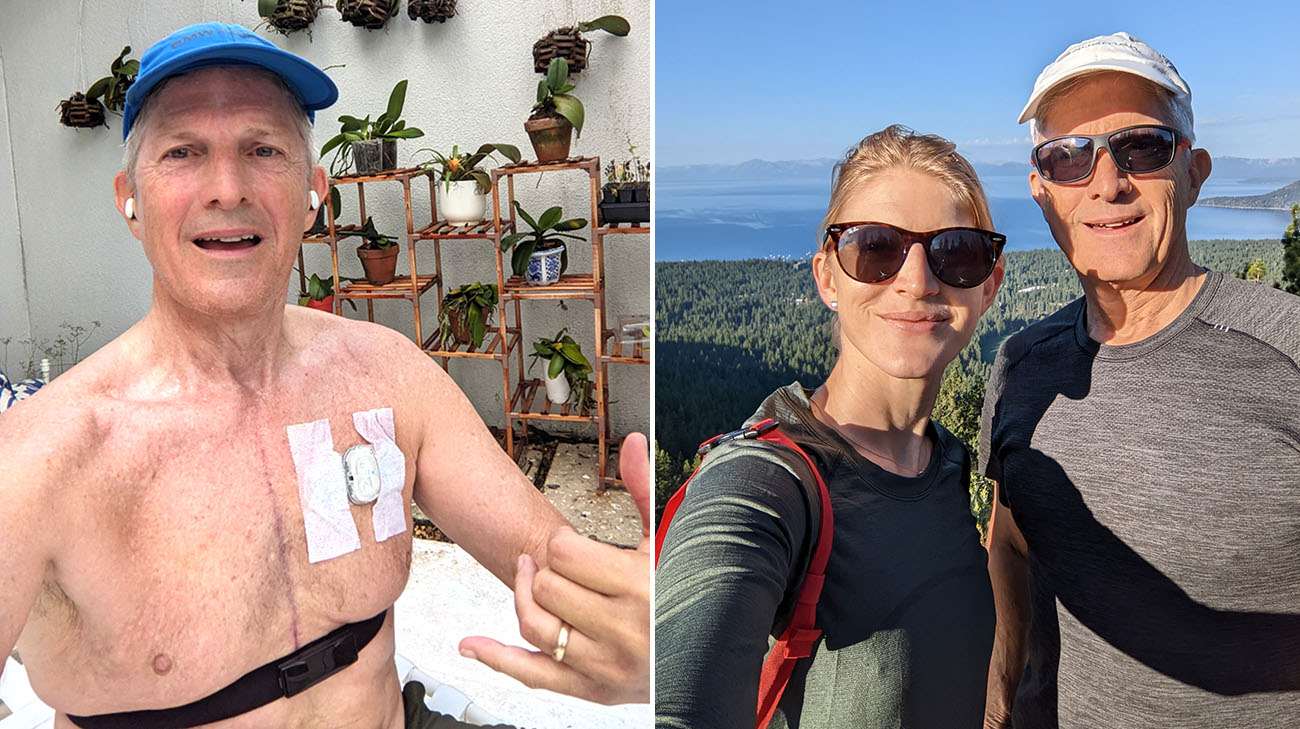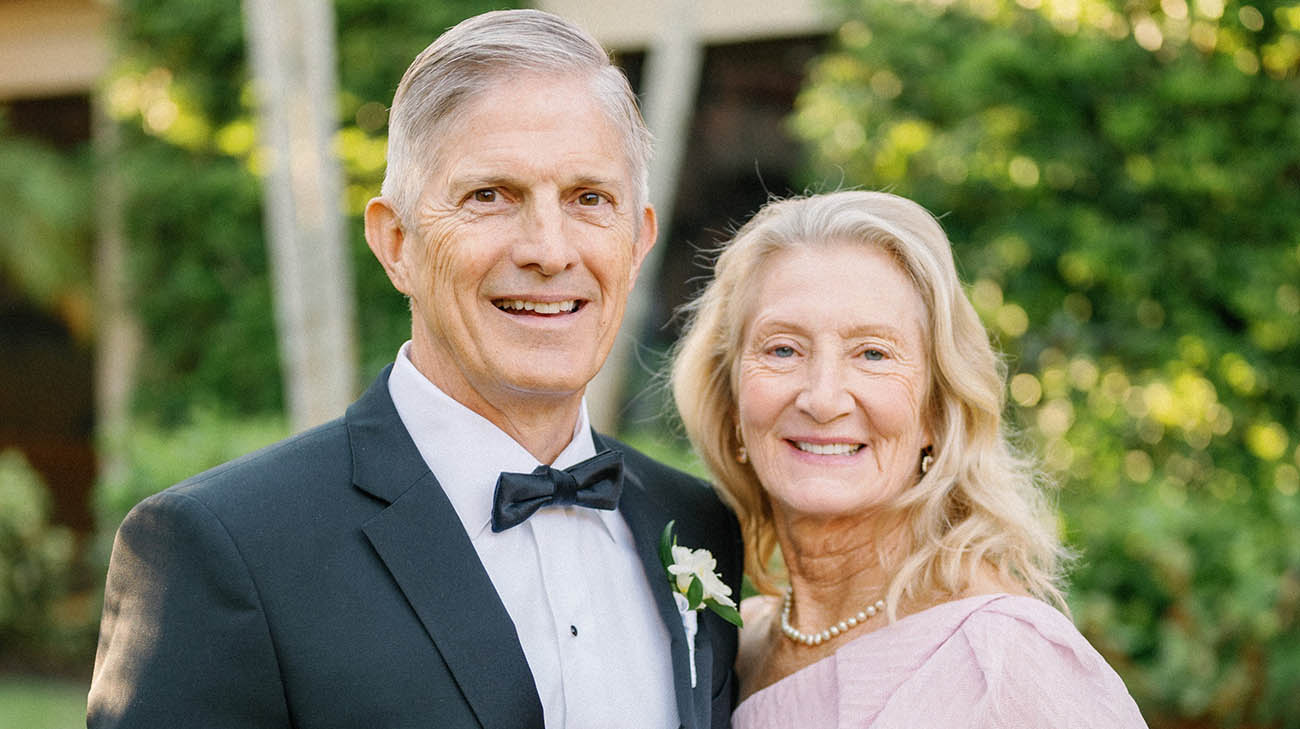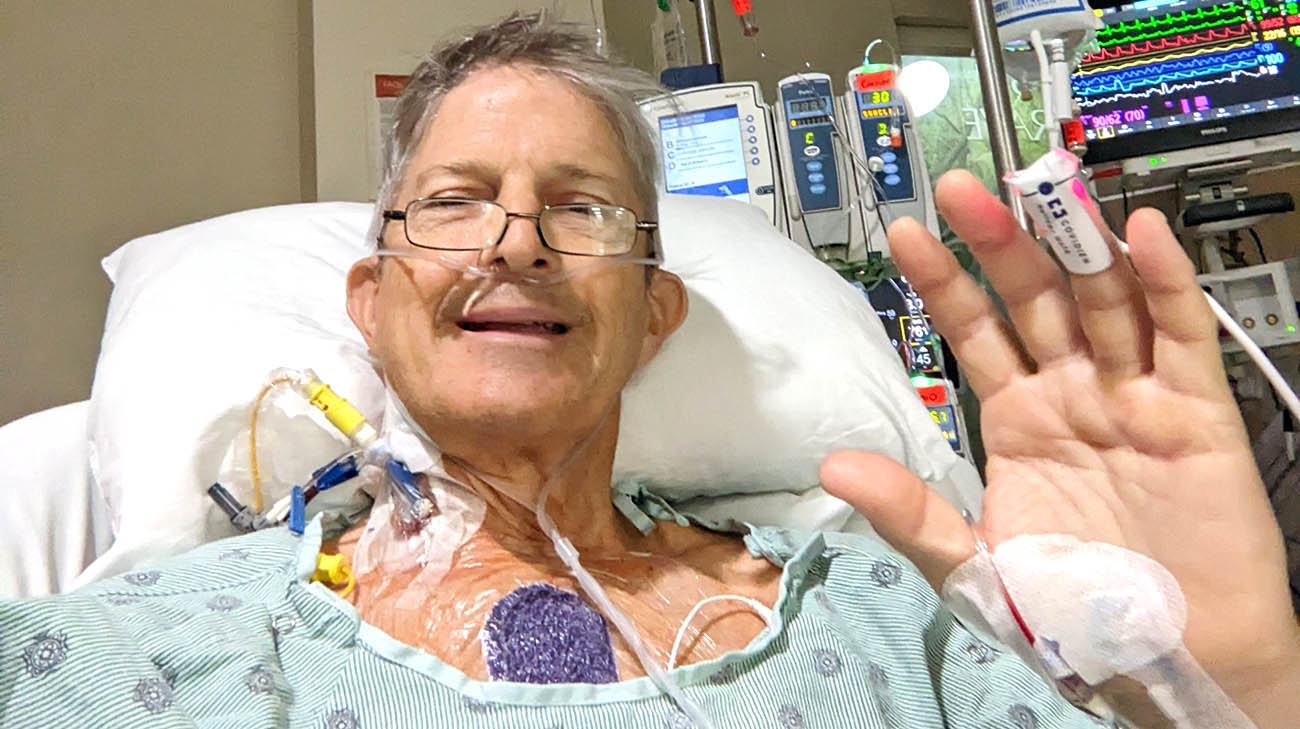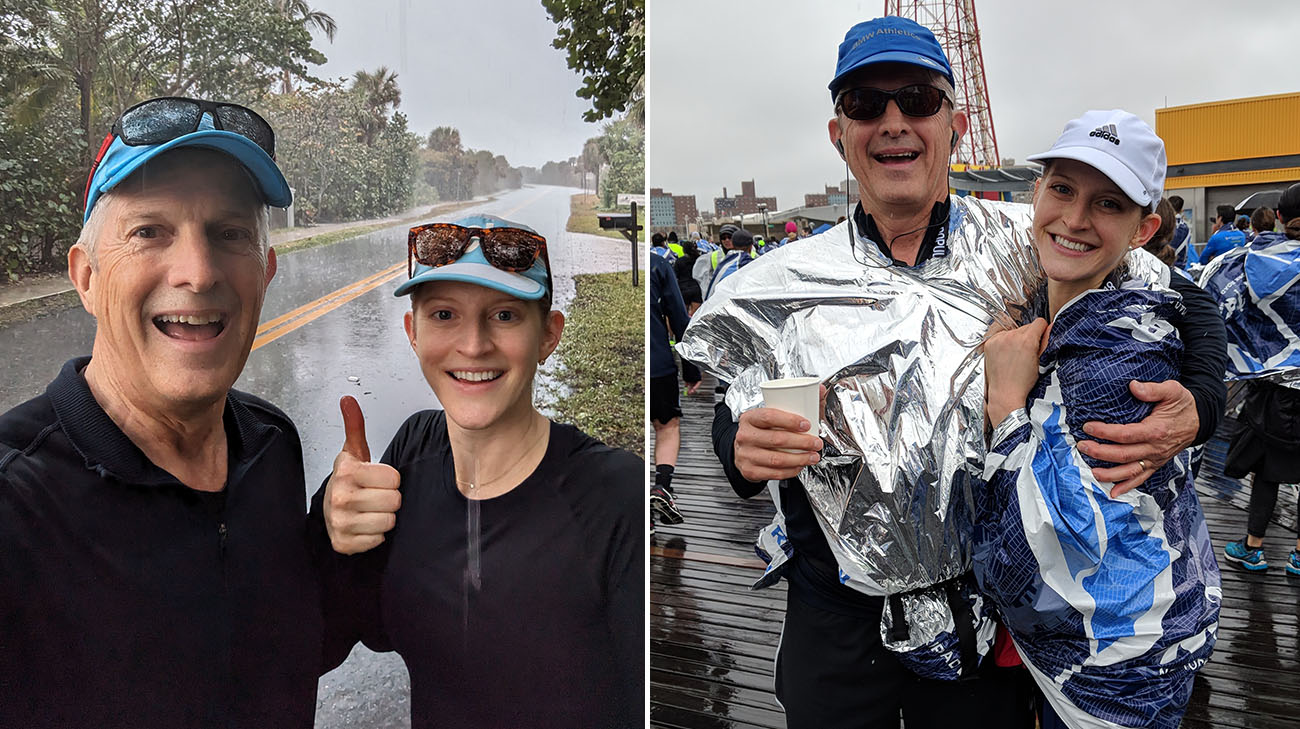
Frequently, and quite matter-of-factly during a conversation, David Hayford will talk about the time he “died,” after completing a 5-mile run.
“I was six feet away from my wife, June, when I hit the kitchen floor. Her phone was fully charged. She called 911, and they were able to walk her through performing CPR on me for 12 minutes until the EMTs arrived,” recalls David.
David, now 67, retired and living in Hobe Sound, Florida, reflects often on that day in March 2021. Despite being in the best shape of his life and training to compete in a half triathlon, David suffered a massive myocardial infarction (heart attack). That perilous event required doctors at Cleveland Clinic Martin North Hospital to perform an emergency percutaneous coronary intervention (PCI) procedure, which involved inserting stents to clear two artery blockages that were disrupting blood flow to and from his heart.
David also benefited from technological advances that were available to the specialists who treated him including an ice-cold vest that enables therapeutic hypothermia, which helps the brain use oxygen more slowly, thus preventing swelling during a major cardiac event, and a device that gives the heart a rest, while providing circulatory support, during the PCI procedure.

David with his wife, June, at their daughter's wedding. June administered CPR on David while he was experiencing a heart attack. (Courtesy: Masson Liang Photography)
Says David, who uses a smart watch, advanced location sharing and several other devices to monitor the performance of his heart and lungs when exercising, “I’m a bit of a technology geek. But technology plays a significant role in my being able to live life the way I want, while also living with cardiovascular disease.”
He credits a high-tech device gifted to him from his son, Thomas, 21 months after his heart attack, that helped save his life in 2023. A smart heart monitor, strapped onto David’s chest whenever he works out, provides a continuous electrocardiogram (EKG) and heart strain measurement while he is exercising.
Importantly, it sounds an alarm when something cardiac-related is amiss. Despite a faint “tap” in his chest at times, David felt well upon returning to intense running and tennis following his 2021 heart attack. However, the device’s alarm repeatedly sounded, signaling the “tap” was potentially life-threatening.
“Ordinarily, I would have ignored a very slight feeling like that,” David remarks. Given the heart monitor alarm triggered several times over a few weeks, David went to Cleveland Clinic for testing. He learned the device had done its job. David had been experiencing stable angina episodes from in-stent restenosis, as blockages had again formed where the stents had been placed, as well as in two other arteries. Resultantly, David underwent quadruple bypass surgery at a Florida hospital, followed by months of cardiac rehabilitation.

After David experienced his second cardiac event, he underwent quadruple bypass surgery followed by months of cardiac rehab. (Courtesy: David Hayford)
After his second cardiac event, he made an appointment in Cleveland, Ohio, with Tamanna Singh, MD, a sports cardiologist and co-director of the Cleveland Clinic Sports Cardiology Center. Dr. Singh, took a thorough sport-specific assessment of David. Beyond reviewing his existing medical records, she had him undergo rigorous cardiac tests and advanced imaging. Those findings, coupled with personalized counseling on lifestyle, prevention, nutrition, medication and training, gave David the confidence to resume his running regimen according to Dr. Singh’s guidelines.
“Chest straps, like the one David uses, are one of the best consumer measures of heart rate, even better than wrist-based sensors,” says Dr. Singh. “These technological advancements can help people who go into abnormal heart rhythms, as they give doctors a series of data points -- and more timely data -- than what we would get from a moment-in-time office visit or test.”
While David uses various forms of technology to help monitor his active lifestyle, a recent national survey from Cleveland Clinic finds he’s not alone.
According to survey results, 50% of Americans use wearable technology to monitor their health. Sixty percent of Americans track their daily step count, and 53% say they began exercising more regularly after using wearable technology to monitor their health.
Perhaps most significantly, 79% of those who use health monitoring technology have noticed positive changes to their physical or mental health.

David continues living an active lifestyle, including going on runs with his daughter, Carolyn. (Courtesy: David Hayford)
Dr. Singh says the advanced heart monitoring devices are especially helpful for some of her patients. They provide information “we can immediately access and then make a decision on related to treatment or exercise protocols.”
David continues having periodic follow-up virtual visits with Dr. Singh, as well as regular check-ups with Ben Glaspey, DO, his primary care physician at Martin North Hospital.
Now, when David sets off on his weekly 5-mile Sunday morning run, his daughter, Carolyn, receives an angst-relieving automatic notification when he begins and ends the run. And, of course, David continues to wear his smart heart monitor, just in case.
“Without the reassurance and confidence from Cleveland Clinic, and the monitoring technology I use, I’m not sure I would be back to my previous level of activity,” says David, who is gearing up to run a half marathon and/or half triathlon in late 2024. “I’m better able to manage my training, but just as critically they give comfort to my family and me.”
Related Institutes: Heart, Vascular & Thoracic Institute (Miller Family), Community Care

